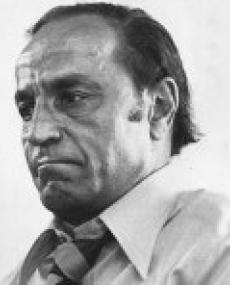
Norman Stewart Middleton was born in January 1921, in Sophiatown, Johannesburg, Transvaal (now Gauteng) and moved to Pietermaritzburg, Natal (now kwaZulu-Natal) when he was 10. In 1940, after finishing school, he signed up to join the army.
He was a soldier during World War II in North Africa and Italy and was wounded by shrapnel in an air raid. After the war, Middleton returned to Pietermaritzburg and began working at Eddels shoe factory, where he became an active member of the Leather Workers’ Union, eventually becoming vice-chairperson.
He was one of the strongest anti-apartheid leaders who kept alive the struggles for a free and non-racial society along with hundreds of other activists during apartheid in the 1950s, ’60s, ’70s, and ’80s, until the dawn of the country’s freedom in 1994.
The South African Council on Sport (SACOS) was founded in 1973 when nine non-racial sporting organisations, mainly Indian and Coloured, came together in opposition to multi-national sport, with Norman Middleton as President and Hassan Howa as vice president. In December 1976 SACOS became a fully fledged member of the Supreme Council for Sport in Africa.
At this time Middleton was also president of the non-racial South African Soccer Federation (SASF) and the non-racial South African Council of Sport (Sacos), which campaigned for the isolation of apartheid sport internationally.
Middleton was also involved with the Labour Party, which under the leadership of Sonny Leon and Alan Hendrickse, used the system to promote a non-racial and democratic South Africa for all South Africans.
He took a firm stance against the passport “blackmail” in June 1974 when he was invited to address the world football body, Fifa, in Frankfurt in Germany. He and his fellow leaders in the SASF had earlier made representations to Fifa to expel the all-white Football Association of South Africa (Fasa). Middleton was given a mandate by the SASF and Sacos to inform the Fifa meeting, on June 11, 1974, as to why Fasa should be expelled. He had applied for his passport in January 1974.
But after being kept waiting for five months, the then minister of interior, Dr Connie Mulder, told Middleton that he would only consider granting him a passport if he declared in writing that he would not do anything to deprive South African sportsmen and women from participating in international sport. Middleton’s response was uncompromising ”” he refused to agree to such an undertaking, declaring that he had made his application as an ordinary South African and as such should be given one. Mulder refused to change his stance and Middleton was denied the right to travel overseas.
Two years later, Middleton was again invited by Fifa to attend its congress in Montreal in Canada in July 1976. Once again Mulder reiterated his position that he would only grant Middleton a passport if he gave a written undertaking not to harm South African sportsmen and women.
In a report under the headline, “Middleton refusal on passport”, on May 13, 1976, Middleton said:
I want all South African sportsmen and women to enjoy international competition and not only the white sportsmen and women. I would defend a system where South African sportsmen and women of colour are discriminated against at all levels of society.
If I ever visit overseas countries, I would tell them nothing but the truth as it exists in South Africa instead of the false propaganda being promoted overseas in regards to the sports policy of the country.
If telling the truth is going to jeopardise the position of white sportsmen and women, then I believe this should be done – the sooner the better.
In 1979 Middleton called for a new national sports symbol. He denounced the Springbok as a symbol of oppression and advocated a new award for national representatives of all colours, but another decade passed before Middleton’s call resurfaced.
He was one of the founding members of the Coloured Labour Party formed in 1950 and went on to form the Natal Council of Trade Unions with other unionists.
As a leader of the Labour Party, he had repeatedly said that they were only participating in the then Coloured Representative Council (CRC) not to make it work but to destroy it. (The apartheid regime was using the CRC, the Bantustans, the urban Black councils and the South African Indian Council (SAIC) at this time to deny full citizenship rights to all South Africans.)
Middleton reiterated his strong anti-apartheid views when he addressed mass meetings all over the country over the next few years. He also spoke out against the moves by the apartheid regime at that time to introduce the Newspaper Bill to control the print media.
Middleton played an active role in the trade union movement as the Natal Organiser of the Engineering Industrial Workers Union, which was an affiliate of the Trade Union Council of South Africa (Tucsa).
His attempts to help organise Black workers at the request of a prominent trade union leader at that time, Barney Dladla, in the early ’70s led to him being dismissed by the Engineering Union because he had allowed a Black trade union to temporarily use his union’s offices in Pietermaritzburg.
Middleton stepped aside as a prominent spokesman on anti-apartheid sports and politics only after the African National Congress (ANC) and other organisations were unbanned and after Nelson Mandela was released in February 1990.
He joined the Inkatha Freedom Party (IFP) and served as an MP in Cape Town after 1994.
Norman Stewart Middleton passed away on 2 July 2015, Cape Town, Western Cape at the age of 94.